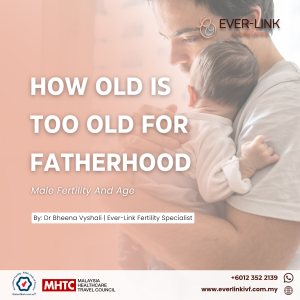
For years, society has focused on female fertility and the ticking biological clock, but what about men? The common belief that men can father children at any age is not entirely accurate. While it’s true that men remain fertile longer than women, age still plays a crucial role in reproductive health. So, how does age impact male fertility, and can men father children at 40 years and above without complications? Let’s take a deep dive into the science behind male fertility and age.
Does Age Affect Male Fertility?
Yes, age does impact male fertility, though not as dramatically as it does for women. Research shows that after the age of 40, sperm quality begins to decline. While men continue to produce sperm throughout their lives, the impact of age on sperm is more significant than many realize.
Can Men Father Children at 40 and Beyond?
While many men in their 40s and 50s successfully become fathers, it’s important to acknowledge the potential challenges. Yes, men can father children at 40 years and above, but the chances of successful conception and a healthy pregnancy may decline. Studies indicate that men over 45 face a 14% decrease in fertility rates each year, making it progressively harder to conceive naturally.
Busting the Myth: Men Can Father Children at Any Age
It’s true that some celebrities and public figures have fathered children in their 60s or even 70s. However, these cases do not represent the norm. The reality is that fertility naturally declines with age, and men should be aware of the potential risks associated with delaying fatherhood.
How to Improve Male Fertility as You Age
If you’re considering fatherhood later in life, there are ways to improve sperm health and boost your chances of conception:
- Maintain a Healthy Diet – A diet rich in antioxidants, omega-3 fatty acids, and vitamins like C and E can support sperm quality.
- Exercise Regularly – Staying active improves blood flow and hormone levels, which benefits sperm production.
- Avoid Smoking and Excessive Alcohol – Both habits contribute to reduced sperm quality and count.
- Manage Stress – Chronic stress can impact testosterone levels and sperm production.
- Consider Sperm Freezing – If you’re planning to delay fatherhood, sperm freezing in your 30s or early 40s can help preserve sperm quality.
Conclusion
While men don’t experience a strict fertility cut-off like women, male fertility age does matter. The impact of age on sperm becomes more evident after 40, leading to potential challenges in conception and pregnancy health. If you’re planning to start a family later in life, understanding these factors can help you make informed decisions and take proactive steps to maintain reproductive health.
Thinking about fatherhood but concerned about age? Consult a fertility specialist to assess your sperm health and explore the best options for your journey to parenthood.

